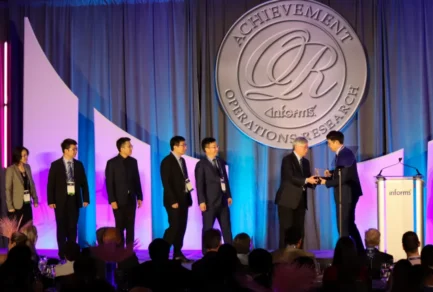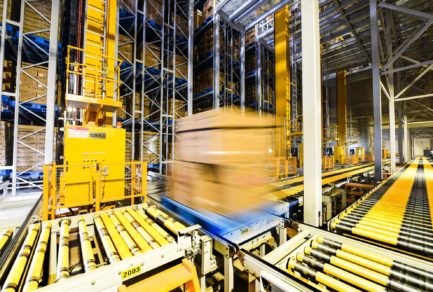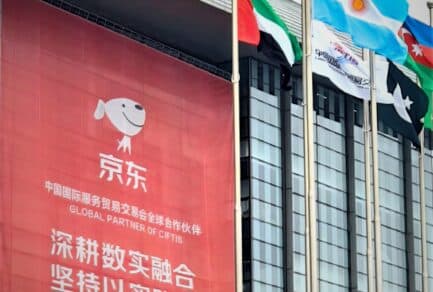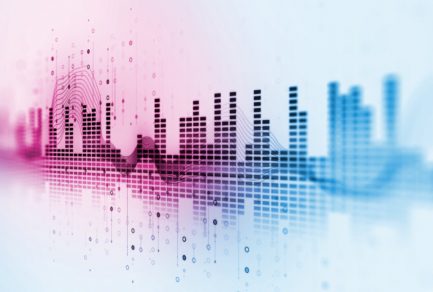Nov 25, 2020|
JDD Series: AI for a More Human World: MIT Professor Daniela Rus Speaks at JDD
by Kelly Dawson
For many, AI can evoke images of a less human world in which technology reigns— but for MIT professor Daniela Rus, AI actually enables more human experiences, carrying with it enormous potential for good.
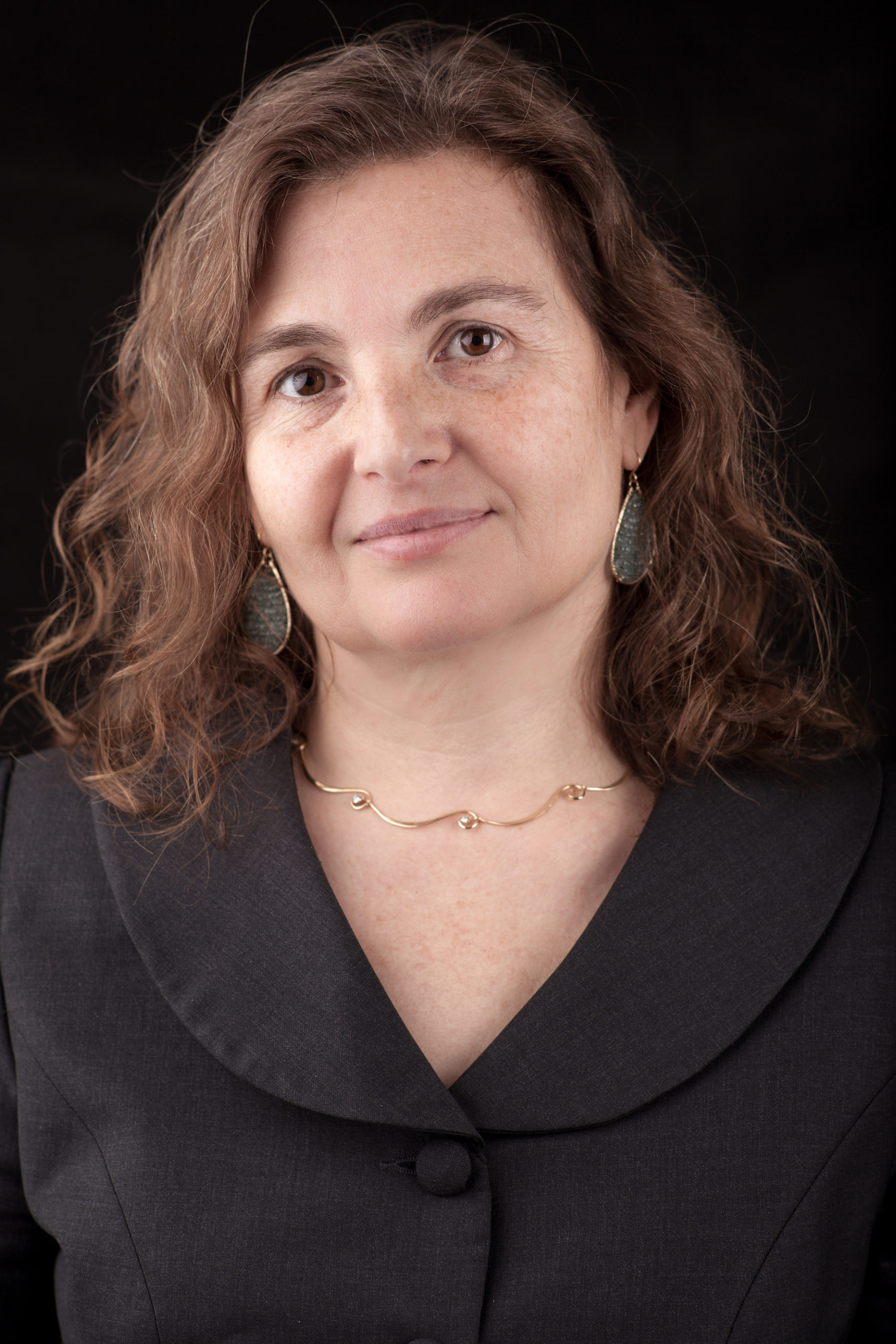
Speaking at this year’s online JD Discovery conference, which gathered industry experts from around the world in all areas of technology, Rus posed a scenario in which a visually impaired individual dons a smart wearable device to take a walk on a summer day. The device might describe a beautiful window display through a brail buckle that spells out the description, vibrate gently on the user’s left to notify him of an obstacle; or communicate that a friend is walking by—or even alert him to the presence of a small cat. Later the person might find a bench where he can sit and feed ducks.
“Imagine the richness of a user who can take advantage of the AI robotics learning technologies that enable these kinds of capabilities, and how much richer this experience is than walking down the street using a white walking stick where all you get is one bit of information: Is there an obstacle in front of me, or not? This is extraordinary,” she said.
Beyond enriching people’s lives on a daily basis, AI is also playing a key role in the ongoing fight against COVID-19, she said. A team of students in her lab is currently developing ways to use robots to fight the spread of infection by disinfecting spaces and ensuring food security, an essential task during a pandemic. One project developed by the team is a robotic system that traverses the warehouse for the Greater Boston Food Bank, neutralizing any potential virus particles with UVC light. Computing its own speed and trajectory in order to cover every surface of the space, the robot is ensuring the safety of not only warehouse workers, but everyone who receives food from the project.
In this way AI actually enhances our humanity, opening the way for safer, more enriching experiences. But the public understanding of these technologies has often lagged, said Dr. Bowen Zhou, president of JD Cloud & AI, in an essay touching on similar topics earlier this year.
Some of this lingering squeamishness around AI is rooted in unfamiliarity, Zhou said. “Many people lack full understanding of AI, and therefore are more likely to view AI as a nebulous cloud instead of a powerful driving force that create a lot of value for society,” he said.
Additionally, the technology is proliferating faster than regulations can keep pace, he said.
Rus echoed Zhou’s thoughts, noting that it will be up to scientists and AI experts to proceed with deep consideration of how the technology should develop.
“We have to be thoughtful about the consequences of our work,” Rus said. “We have to ensure that advancements serve the greater good, and that everyone should have the opportunity to benefit from [such] a future.”
Zhou believes that as long as the AI community is willing to face these concerns head on, there is little to fear about the development of these technologies. Making AI more accessible through education and communication about its benefits will be key to helping people understand the potential value of AI, he said. JD is already focused in this direction, with research in visual IoT that enables AI to be more explainable and accountable, among other efforts, he said.
“[Building] trustworthy AI is a marathon, not a sprint,” he said. “But if we embrace AI innovation and regulation with an open, inclusive, principle-based and collaborative attitude, the value AI can create can far exceed our expectations.”
Rus noted that in light of the broader difficulties and challenges facing humanity—COVID-19, climate change, disease, inequality and more—it would be easy to feel disheartened.
“But I don’t,” she said. “I feel hopeful, because when I look around I see the many ways in which technology in general and AI in particular have made the world better. There are so many ways in which tech can help us with our greatest challenges, whether those are challenges faced by individuals or challenges faced by society.”
Rus envisions a future in which routine tasks are increasingly offloaded to machines, so that people can focus on cognitive, strategic tasks that allow them to do critical and strategic thinking.
“I imagine the doors that AI will open for the future,” she said. “It is so wonderful to be part of this revolution at this point in time.”

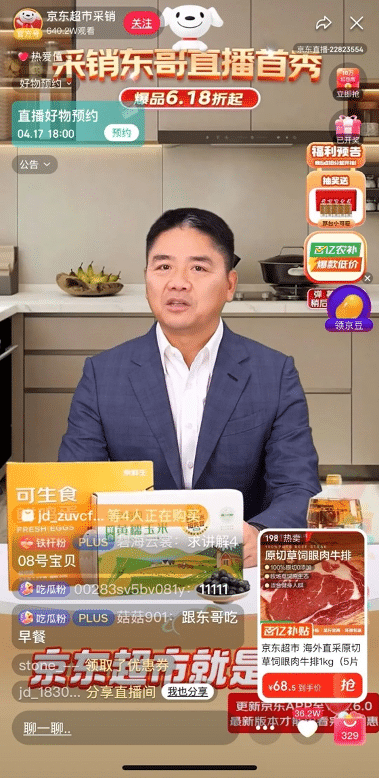

 JD Health and CTTQ to Explore Cooperation On Pharmaceutical Industry
JD Health and CTTQ to Explore Cooperation On Pharmaceutical Industry
